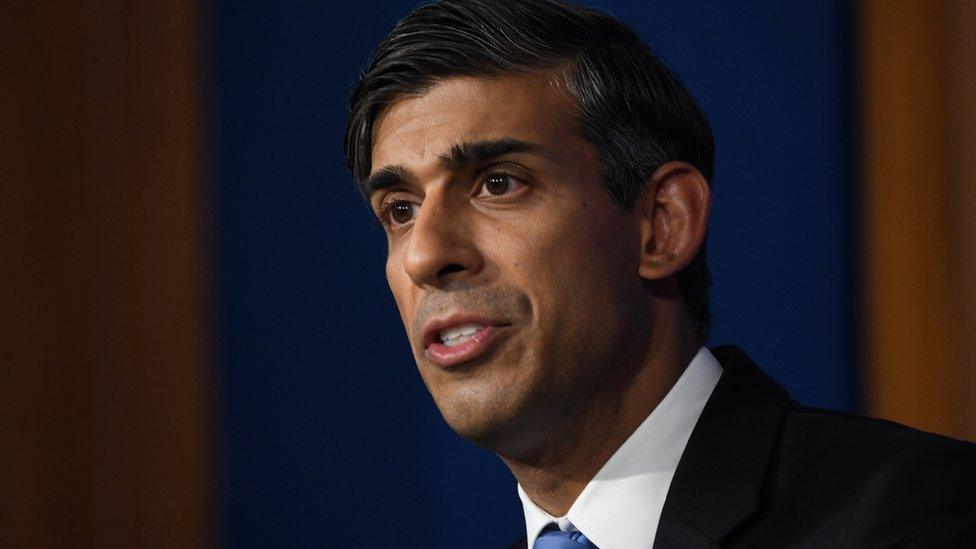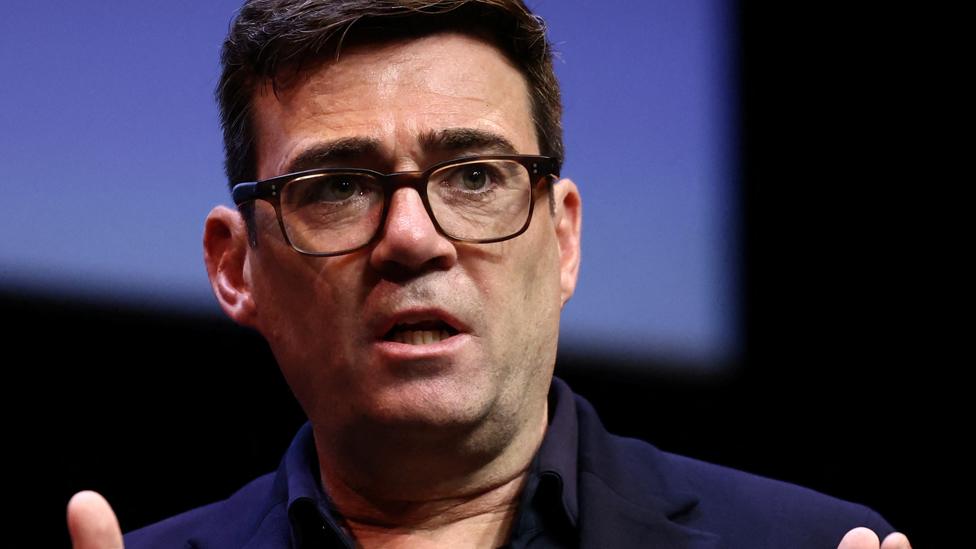Rishi Sunak considers radical shake-up of A-levels
- Published
- comments

Prime Minister Rishi Sunak is considering a new baccalaureate qualification to rival A-levels
Rishi Sunak is considering a major reform of A-levels in England which could see the introduction of a new "British baccalaureate".
The prime minister's plans could include the compulsory study of maths and English up to the age of 18, according to newspaper reports., external
The shake-up of A-levels would be controversial - but no final decision has been taken.
Labour said the proposals were an "undeliverable gimmick".
The government has denied that Mr Sunak is trying to find radical proposals which will help his party in the polls, with No 10 saying this week that the prime minister is focused on long-term solutions.
Mr Sunak initially suggested the idea of a new baccalaureate qualification during his unsuccessful leadership campaign against Liz Truss last year, and has previously said he wants all young people to study maths to 18.
It is possible the prime minister will set out more of his plans for education at the Conservative Party conference in October.
Andrew Mitchell, who attends Cabinet in his role as a Foreign Office minister, said he expects Mr Sunak to agree to a significant reform of England's education system.
"We will be guided by the best expertise on how we ratchet up standards and give children the best possible chance of getting the graduate jobs of the future," he told BBC Radio 4.
About half of 18-year-olds in England currently take A-levels, typically sitting exams in three subjects.
In 2021, the EDSK education think tank said, external the dominance of A-levels in secondary education was "inescapable" and that they were too narrow, calling for a new baccalaureate qualification to replace them.
In theory, it would broaden the curriculum to cover any academic, applied and technical subject which students could gradually specialise in over the course of a three-year qualification.
Education is devolved in Scotland, Wales and Northern Ireland, so decisions in each nation are taken by devolved governments.
The proposal for England is being called a "British baccalaureate" to differentiate it from the current English baccalaureate, external, which is a separate set of subjects at GCSE level.
Any educational reform in England would be controversial, and concerns have already been raised about the potential impact on existing recruitment and retention issues within teaching.
David Robinson, director for post-16 and skills at the Education Policy Institute, said steps to broaden the curriculum were "encouraging", but added that it would cause an increase in workload for teachers.
Daniel Kebede, general secretary of the National Education Union, called it a "sketchy proposal" and said teaching was already facing a "recruitment and retention crisis".
A spokesperson for the Sixth Form Colleges Association said the post-16 curriculum, which is "narrow by international standards", was partly reflective of "chronic underinvestment in sixth form education since 2010".
The government is already working through its rollout of T-levels, a new vocational qualification which the first cohort of students started in 2020.
Shadow education secretary Bridget Phillipson accused Mr Sunak of "pursuing short-term headlines" with an "unworkable policy".
A Department for Education spokesperson did not comment directly on the proposals, but said the government was already "reforming technical education", and had set out "bold plans" to facilitate the study of maths up to the age of 18.
- Published21 September 2023

- Published17 August 2023

- Published17 May 2023

